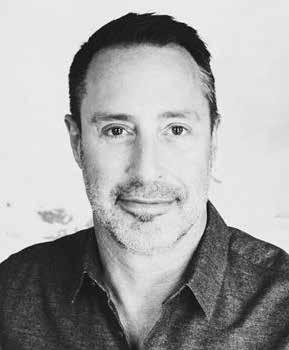
4 minute read
Old Boy makes giant leap for mankind
Old Boy Mark Pathy ’86 began his April 22 talk to the Selwyn House School Space Club with an old proverb: “If you want to travel fast, go alone. If you want to travel far, go together.” Mark has obviously opted for the latter, because he is joining the crew of three who will man the first private mission to the International Space Station (ISS) in 2022.
The flight is a joint venture between NASA and Axiom Space, and will use the Dragon spacecraft built by SpaceX, a company founded by Elon Musk. NASA’s goal is to establish “a low-Earth orbit marketplace where the private sector leads the way.”
Advertisement
Mark is not an astronaut, a pilot, nor a scientist. He is a businessman. His career in advertising and finance, and his involvement with Fednav, Ltd., his family’s shipping business, have brought him to a place in life where he can afford the multi-million-dollar ticket to the ISS, and can also afford to be philosophical about it. “There’s a lot more to success than just money,” he told the Selwyn House students. “We need relationships in life, and we need to have each other’s backs.”
Mark and his crewmates will have each other’s backs as they share 10 days in space. The crew began their training in June with a week-long trek in Alaska, then underwent what Mark describes as a “ridiculous” barrage of medical tests to establish whether they have “the right stuff’ for the voyage. From September through mid-January, the crew will undergo 16 weeks’ training in Houston and at SpaceX headquarters in California.
Only one of the four crew members has ever been to outer space before. The other three are businessmen like Mark. The level of fitness required is nothing unattainable, he says. “I’m healthy and fit, but I don’t have to be a triathlete.”
A father of three children, aged 3 to 6, Mark predicts that being away from his family will be the roughest part of the whole experience.
Mark’s interest in space began—like everyone else’s—from watching Star Trek as a kid.
After the retirement of NASA’s Space Shuttle in 2011, the Russian Soyuz was the only vehicle for human spaceflight to the ISS until Spacex began delivering cargo to and from the ISS in 2012. In 2020, the company began transporting people to the orbiting laboratory under NASA’s Commercial Crew Program.
In 2019, when Mark learned that Axiom Space was planning a trip to the ISS, he picked up the phone and got his name on the list. He watched a video of a launch, finding it “exciting, at times, scary,” he told the Selwyn House students.
“The [1986 and 2003] Shuttle accidents weigh on me,” he admitted. “I’m by no means a daredevil. I don’t have a death wish.”
Once they reach the ISS, Mark and the crew will spend 12-15 hours per day doing routine tests, and will also serve as guinea pigs for medical technology such as augmented-reality diagnostic equipment for non-doctors. Mark will reportedly be collaborating with the Montreal
Nicholas Johnson continued
“The artistic director for the video reached out to me in early August, inviting me to be featured in the video, and I gladly accepted,” Nick explains. “Filming for the video was an entertaining experience. A Montreal-based film crew was contracted to record my part. We filmed for roughly two hours to produce the brief clip you saw.”
Nick writes that he has settled into Cambridge to attend MIT. “Most of my classes will be online,” he says, “however, my research adviser plans on having in-person research meetings.” Children’s Hospital and the Canadian Space Agency. All these experiments, he points out, “have real implications for life here on Earth.”
On his personal bucket list, Mark is looking forward to doing some photography and is hoping to experience the Overview Effect, a phenomenon well known among astronauts when they first view the earth from space. He intends to spend some time “reflecting on our place on the planet, and how to act on these perspectives when I get back.”
On the lighter side, he also looks forward to the fun of experiencing weightlessness, even hoping to re-enact Homer Simpson’s famous potato-chipeating stunt.
But, that’s not to say he doesn’t take this seriously. “To me, this is not a frivolous undertaking,” he told the Globe and Mail. “It’s something that I think is important and meaningful.”
Until the countdown, then, Mark continues his regimen of training four days a week, with an hour of meditation every morning.
But if Axiom really wanted to know whether their civilian astronaut has “the right stuff,” they could have just picked up the phone and asked for Mark’s rugby coach at Selwyn House: Peter Govan. “I remember him as a competitive athlete,” recalls Mr. Govan. “He tests himself.”










